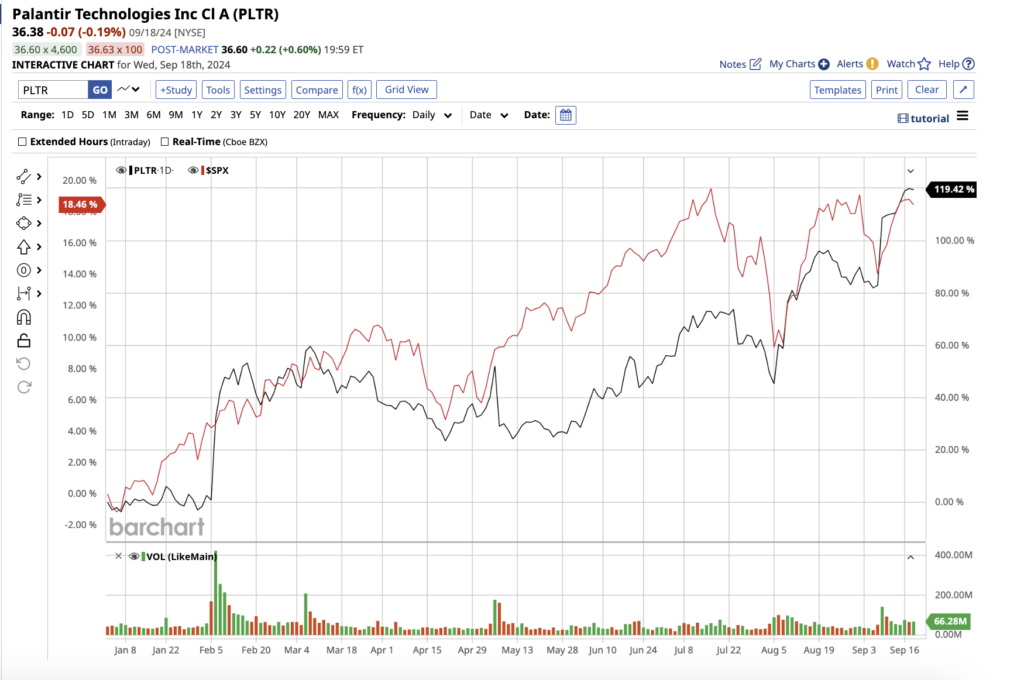Shares of Dell (NYSE: DELL) fell 20% in July, according to data from S&P Global Market Intelligence. AI stocks took a beating in July, thanks to some discouraging tech headlines and mounting concern about global macroeconomic growth. Dell enjoyed several quarters of strong performance thanks to that trend, but optimism is waning for this hardware business and the industry as a whole.
Dell’s previous momentum dissipated as market conditions changed
Dell stock charged higher last year as investors flooded toward stocks with exposure to the AI boom. Shares returned more than 300% from the start of 2023 through May 2024. The company reported unexpectedly robust demand for its storage and networking hardware products, and it forged partnerships with some of the highest-profile AI stocks, including Nvidia (NASDAQ: NVDA), Meta Platforms (NASDAQ: META), and Microsoft (NASDAQ: MSFT). Demand for consumer PCs has been abysmal, but the bull narrative maintained that Dell could benefit from the emerging automation industry while its more traditional business lines moved toward cyclical recovery in 2025.

IMAGE SOURCE: GETTY IMAGES.
That narrative started unwinding in May, after investors were disappointed by the company’s lukewarm outlook. It’s only gotten worse since that point, thanks to deteriorating market conditions. Tech stocks generally struggled, and the fiasco with CrowdStrike (NASDAQ: CRWD) and Microsoft’s global IT outage marked a flashpoint.
The IT outage didn’t ultimately affect most tech companies’ fundamentals, but it functioned as a reality check for bullish investors. Many tech stocks plunged lower halfway through July, and the sell-off gained steam. Investors seem to be pulling back on positions that have delivered huge gains on the back of AI valuation.
Note how much Dell’s price chart resembles those of Nvidia and Broadcom (NASDAQ: AVGO). Those semiconductor stocks delivered noteworthy returns thanks to demand for AI applications. Those stories are reminiscent of Dell’s, and it’s unsurprising that the stocks share common drivers.
The hardware business has limitations
Dell might get a big boost from the spread of AI, but it’s still a large and diversified business that’s exposed to more general cyclical trends among businesses and consumers. It rebounded from a shrinking top line, and most analysts are only forecasting single-digit sales growth, even with the bullish recovery at hand. That’s not enough to command an expensive valuation ratio that you might find elsewhere in the tech sector.
Dell’s forward P/E ratio climbed from 12 to over 20 at its year-to-date peak but has since slumped. Investors won’t accept a high multiple for Dell’s stock.
DELL PE Ratio (Forward) data by YCharts
Dell’s poor performance in July doesn’t seem tied to any specific news. Instead, it’s a warning sign for investors who enjoy large unrealized gains on stocks that experience rising valuation ratios. That’s not necessarily an indication that it was time to sell Dell shares, but holders should have prepared themselves for potential volatility in the short term — whether that meant taking some gains, hedging, reallocating elsewhere in their portfolio, or simply making a mental note to accept price fluctuations.
Should you invest $1,000 in Dell Technologies right now?
Before you buy stock in Dell Technologies, consider this:
The Motley Fool Stock Advisor analyst team just identified what they believe are the 10 best stocks for investors to buy now… and Dell Technologies wasn’t one of them. The 10 stocks that made the cut could produce monster returns in the coming years.
Consider when Nvidia made this list on April 15, 2005… if you invested $1,000 at the time of our recommendation, you’d have $638,800!*
Stock Advisor provides investors with an easy-to-follow blueprint for success, including guidance on building a portfolio, regular updates from analysts, and two new stock picks each month. The Stock Advisor service has more than quadrupled the return of S&P 500 since 2002*.
*Stock Advisor returns as of August 6, 2024
Randi Zuckerberg, a former director of market development and spokeswoman for Facebook and sister to Meta Platforms CEO Mark Zuckerberg, is a member of The Motley Fool’s board of directors. Ryan Downie has positions in Microsoft and Nvidia. The Motley Fool has positions in and recommends CrowdStrike, Meta Platforms, Microsoft, and Nvidia. The Motley Fool recommends Broadcom and recommends the following options: long January 2026 $395 calls on Microsoft and short January 2026 $405 calls on Microsoft. The Motley Fool has a disclosure policy.




